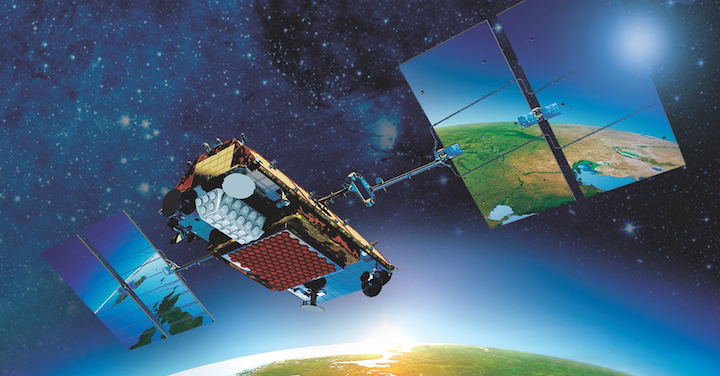Latest News

Rendering of Iridium Next satellite. Photo: Iridium
Iridium Communications continued its multi-year growth streak in 2023, reporting record revenue for the year of $790.7 million, up 10% from the year-ago period. The satellite operator reported full year financial results on Feb. 15.
Total revenue included $584.5 million of service revenue and $206.2 million of revenue related to equipment sales and engineering and support services.
Iridium ended 2023 with 2,279,000 total billable subscribers, up 14% year-over-year, driven by growth in commercial IoT.
The operator also extended expectations for the useful lifetime of its constellation, from 12.5 years to 17.5 years. Iridium conducted an annual evaluation during the fourth quarter, and based the results on the health of the constellation, satellite performance, and the five spares launched in 2023.
This financial performance follows after strong financial results in 2022, when Iridium grew revenue 17% year-over-year. The prior year in 2021, Iridium grew revenue 5% year-over-year.
Commercial IoT accounts for 75% of Iridium’s total subscriber base, and Iridium ended the quarter with 1,709,000 commercial IoT subscribers. This was an increase in IoT subscribers of 18% year-over-year, driven by continued growth in consumer personal communications devices.
However, the average revenue per user (ARPU) for commercial IoT dipped in the fourth quarter to $7.12, compared to $7.50 in last year’s comparable period. The decrease was due to customer mix. Iridium is seeing greater numbers of personal communications subscribers who typically have lower ARPU plans.
Iridium also issued a 2024 and longer-term outlook, projecting service revenue growth between 4% and 6% for full-year 2024. The company is projecting full-year 2024 OEBITDA between $460 million and $470 million. OEBITDA for 2023 was $463.1 million.
The company has a long-term goal to hit $1 billion of service revenue in 2030.
In a Thursday call with investors, CEO Matt Desch highlighted that Iridium generated more than $300 million in pro forma free cash flow for the full year.
“Growing cash flow is the real storyline for Iridium. It supports our growth in investment and allows us to return capital to shareholders through dividends and share buybacks,” Desch said. “Since turning cash flow positive in late 2019 after completing our second-generation constellation, Iridium has generated approximately $1 billion in free cash flow. We expect to have the capacity for approximately $3 billion in shareholder returns between 2023 and 2030. In fact, Iridium returned more than $310 million to shareholders last year.”
Desch also addressed Project Stardust, a new direct-to-device initiative Iridium announced yearly this year, saying he expects Iridium to be a “core long-term player with a very strong offering” in the market. He expects it to coexist with other offerings, like Starlink satellite-to-cell.
“Being standards based, we don’t have to be first to market, we just have to be one of the best, and we’ve had success doing that in the mobile satellite industry since our founding,” Desch said. “We’re also focused on a very specific set of use cases for complementing terrestrial narrowband IoT and smartphone messaging, both of which will attract new partners like the mobile network operators to sell our services.”
Get the latest Via Satellite news!
Subscribe Now